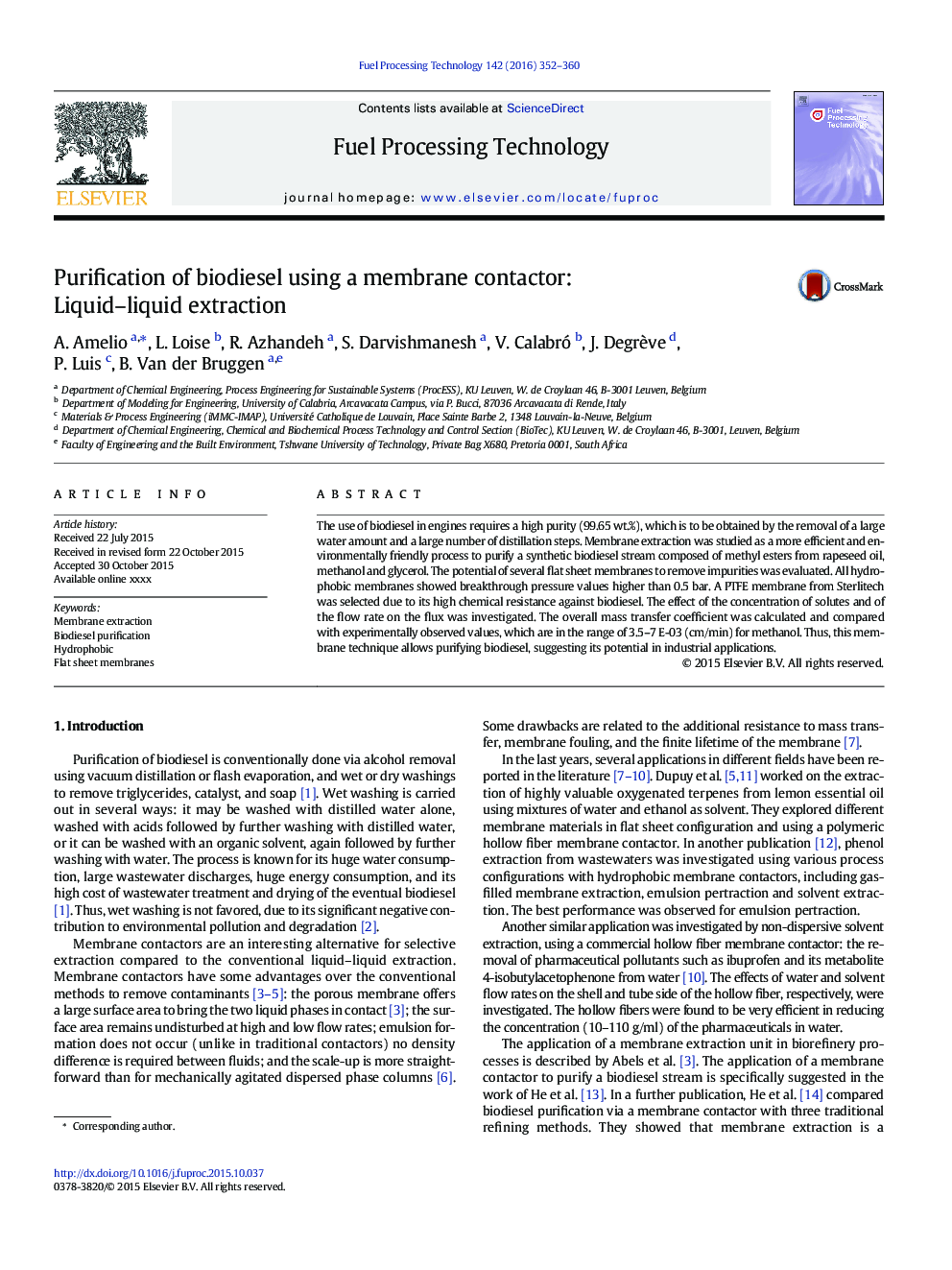| Article ID | Journal | Published Year | Pages | File Type |
|---|---|---|---|---|
| 6656753 | Fuel Processing Technology | 2016 | 9 Pages |
Abstract
The use of biodiesel in engines requires a high purity (99.65Â wt.%), which is to be obtained by the removal of a large water amount and a large number of distillation steps. Membrane extraction was studied as a more efficient and environmentally friendly process to purify a synthetic biodiesel stream composed of methyl esters from rapeseed oil, methanol and glycerol. The potential of several flat sheet membranes to remove impurities was evaluated. All hydrophobic membranes showed breakthrough pressure values higher than 0.5Â bar. A PTFE membrane from Sterlitech was selected due to its high chemical resistance against biodiesel. The effect of the concentration of solutes and of the flow rate on the flux was investigated. The overall mass transfer coefficient was calculated and compared with experimentally observed values, which are in the range of 3.5-7 E-03 (cm/min) for methanol. Thus, this membrane technique allows purifying biodiesel, suggesting its potential in industrial applications.
Related Topics
Physical Sciences and Engineering
Chemical Engineering
Chemical Engineering (General)
Authors
A. Amelio, L. Loise, R. Azhandeh, S. Darvishmanesh, V. Calabró, J. Degrève, P. Luis, B. Van der Bruggen,
